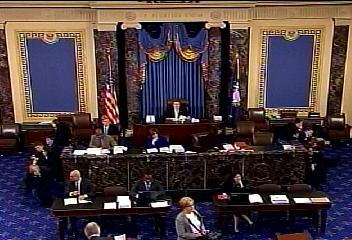
Taxes are more complicated than usual with all the new deductions and credits created last year to stimulate the economy. And in some instances, Congress went back to revise and expand the tax breaks. The popular home buyer credit, for instance, is on its third version.
“You can’t just sit down with last year’s return and make sure you fill in the same lines and think you got everything coming to you,” says Harris Abrams, a senior tax analyst with Thomson Reuter’s Tax & Accounting.
Fortunately, many of the new tax breaks are credits, which are better than a deduction because they reduce your bottom-line tax bill dollar-for-dollar.
So before you fill out your return, here’s a refresher on some of the key tax breaks this season:
Donations to Haiti
If you made a charitable donation for earthquake relief in Haiti, you can deduct it on your 2009 itemized return instead of waiting until next year. This applies to cash gifts—not clothes or other property—made by check, text message or credit cards before March 1, 2010. As usual, donations must go to qualified charities, and you’ll need a receipt. For donations made via text message, a phone bill with the name of the charity and details of the gift will suffice. More info on IRS.gov.
Making work pay credit
This credit is worth up to $400 a year for singles and $800 for joint filers within certain income limits. It was designed to put money quickly into consumers’ hands by having employers reduce the amount of taxes withheld in paychecks.
**Even though you got some or all of the money last year, you will need to fill out the new Schedule M if filing a Form 1040 or 1040A to officially claim the credit.
That said, more than 15 million taxpayers are in for an ugly surprise, according to an estimate by the Treasury Inspector General for Tax Administration. Their refunds may be reduced or they might owe more in taxes because their employers wound up taking out too little for taxes. This can happen to workers with multiple jobs, two-income couples or dependents with wages, says Melissa Labant, technical manager for the American Institute of Certified Public Accountants. Something similar can happen to workers with multiple employers reducing withholdings, Labant says. And dependents don’t qualify for the credit, so they may have to make up for a shortfall in tax withholdings, she says. The Making Work Pay credit is in effect for this year, too. If you didn’t have enough taxes withheld last year, adjust your W-4 now so your employer increases your tax withholdings. More info on IRS.gov.
Home buyer credit
Originally, the $8,000 credit was only for first-time home buyers. Now, long-time homeowners can get a credit of up to $6,500 if they bought a new principal residence after Nov. 6 and lived in their old homes for at least five years in a row in the past eight years. The income limits for eligibility also were raised late last year and the deadline extended. You now must have a house under contract by the end of April, and close the deal by the end of June, and you can claim the credit on your 2009 return. But you won’t be able to file a return electronically when claiming the credit. Blame all the fraudulent home buyer claims last year—that cost taxpayers millions of dollars. To fight fraud, the IRS requires that you file a paper return and submit proof that you bought a house. If you’re claiming the $6,500 credit, you’ll need to document that you meet the five-year residency requirement. The IRS will start processing these paper returns in mid-February, and the earliest refunds will go out toward the end of March. If you don’t provide full and accurate information, count on your refund taking longer. More info on IRS. gov.
Car sales tax deduction
If you bought a new car, motorcycle or mobile home between Feb. 17 and the end of 2009, you may be able to deduct the sales tax paid on the first $49,500 of the purchase price. You don’t have to itemize to get this deduction. The tax break starts phasing out once income hits $125,000 for singles and $250,000 for joint filers. More info on IRS.gov.
Energy credits
Congress expanded these for energy-conscious homeowners. For 2009 and this year, claim a credit worth up to 30% of the cost—not to exceed $1,500 over the two years—of adding energy-efficient windows, doors, heaters, air conditioners, water heaters and heating systems. Add a solar water heater, wind turbine, geothermal heat pump, solar electric systems, and the credit is worth 30% of the cost with no dollar limit. More info on IRS.gov.
Help for the unemployed
For 2009 only, you won’t have to pay income taxes on the first $2,400 of unemployment benefits received. Also worth noting is the recent expansion of the COBRA subsidy, although this isn’t a tax break. Uncle Sam has been paying 65% of the health insurance premiums for unemployed workers buying coverage under COBRA, the federal law that allows ex-employees to remain on an old employer’s health plan for up to 18 months. This subsidy was recently expanded by six months so unemployed workers can receive assistance for a total of 15 months. It applies to workers who lost their jobs from Sept. 1, 2008, through the end of next month. More info on IRS.gov.
Education credit
The $2,500 American Opportunity Tax Credit for higher education improves upon the old Hope Scholarship credit. “For most people, it’s going to be the credit of choice in the education area,” says Mark Luscombe, principal tax analyst with CCH, publisher of tax information. The Opportunity credit covers the first $2,000 spent on tuition, fees, books and required materials, and 25% of the next $2,000 in expenses. You can claim it in any of the first four years of college. And 40% of the credit is refundable, so if you don’t owe any taxes you can get as much as $1,000 back in a refund. The credit begins to disappear once income reaches $80,000 for singles and $160,000 for joint filers. More info on IRS.gov.
Boost your savings
For the first time, you will be able to direct the IRS to use all or part of your refund to buy U.S. Savings Bonds. You can buy up to $5,000 worth of Series I bonds designed as a hedge against inflation. The bonds, sold in multiples of $50, will be mailed to you later. To buy the bonds or have the IRS split your refund among different bank accounts, fill out Form 8888.
Source: Eileen Ambrose – RISMedia
Share the wealth: 

![]()











